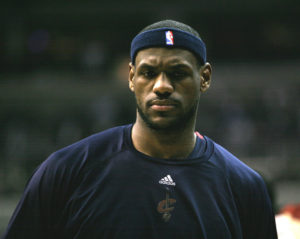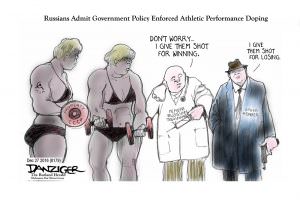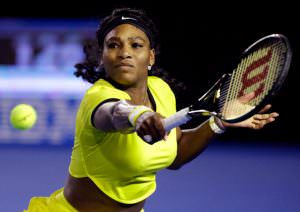Baseball? That Ain’t Hood
African Americans are abandoning baseball in droves. But should we care?It’s a warm Saturday in Oakland but you couldn’t tell by looking at the baseball diamond at the rec center in Sobrante Park. There is only an old man watching a Little League game not being played.
Never mind that just down the street is the birthplace of baseball Hall of Famer Joe Morgan, while a short distance away at Bushrod Park all-time runs and stolen bases leader Rickey Henderson developed his devastating blend of speed and power. In Oakland, the story is the same as in other inner cities: empty playing fields and a declining number of black youths taking interest in America’s Pastime.
Morgan and Henderson were part of a wave of black success that peaked in the ’70s. Starting, of course, with Jackie Robinson’s arrival in the big leagues and the subsequent arrival of Negro Leagues stars like Satchel Paige, a slew of these black heroes inspired the youth.
“African Americans, following their heroes, began filling the ranks of baseball reaching a high of 175 players on 25 teams in 1975,” wrote sports reporter Jake McDonald on BlackAmericaWeb.com. Yet, “Since [Hank] Aaron’s final [record-setting home run] blast in 1976, the faces of African Americans have disappeared steadily. Once upon a time fans looked forward to seeing Mr. October Reggie Jackson come to the plate. Jackson, one of the most colorful players of his era, retired ten years after hitting a record five homeruns in the 1977 World Series. Just about every little leaguer, including myself, wanted to be just like Jackson right down to the shades.”
Today, with football and basketball dominated in numbers and star power by black athletes, major league baseball looks more like the MLB of 1960, when Dominicans and Cubans first began flooding into the then mostly white leagues. Today, American-born blacks comprise only 13% of the league — about 90 players — and the numbers are projected to continue falling as foreign-born Latinos dominate the lineups of most of the best teams.
Some African-American athletes and fans are furious about this decline. At a time when black men continue to be incarcerated in epic numbers, any decline in the number of positive role models or positive activities for young people is seen as contributing to a vicious cycle plaguing America’s poor black communities. However, not everybody agrees about the reasons for African Americans’ move away from baseball, or even if the shift is worth reversing.
Morgan, arguably the best second-baseman to ever play the game, is one of those frustrated at the decline of urban baseball. In an interview with Frank Deford, Morgan said many African Americans have been excluded from baseball because there aren’t enough inner-city playing fields to foster the game among urban black youth.
Psychological theory, however, suggests that a park alone can’t inspire a young athlete, that what is needed is a solid mentor to lead him or her. Still, Morgan is working on solving at least half the problem by urging Major League Baseball to fund nonprofit groups called Breaking Barriers: In Sports, In Life, and Reviving Baseball in Inner Cities (RBI).
In line with McDonald’s analysis, I find the role model theory compelling: Young African Americans began abandoning baseball in large numbers in the 1980s exactly when flashier black athletes were rising to mega-stardom in football and basketball. Michael Jordan, with his high-flying dunks and wildly popular line of shoes, especially epitomized the intoxicating blend of money, talent, power and fame that kids wanted to copy.
It’s easy to see why baseball would lose a fight to football and basketball in the category of “Showtime” in an increasingly celebrity-obsessed culture that sees success as measured by the ability to move product. Through the ’80s and ’90s, African American baseball stars like the ever-quiet Tony Gwynn and the awesome but subdued Joe Carter had to compete with the likes of the NBA’s Jordan and Magic Johnson and NFL glamour boys Deion Sanders and Michael Irving. These showy players just had more appeal.
I teach high school classes on media and culture and some of my black students admit that they avoid playing baseball because “it’s just too boring.” In my conversations with them about why they don’t care for baseball, they say things like “there’s never enough people to play” or “that’s for white people.” Yet for decades, rural and urban African Americans had played baseball on sandlots and Negro League barnstorming teams all across the country.
Can we draw any conclusions from a cultural shift away from a sport that emphasizes patience and calculation to sports that, more times than not, hoist highly spectacular and often ostentatious figures and images?
Retired NBA star and sports broadcast figure Charles Barkley’s response to the staggering decline in African American baseball activity is to emphasize what he considers much more important avenues to strengthening black and poor communities. In a radio interview, Barkley suggested that the decline could even be a good thing and that blacks have much more to worry about than playing baseball; he hopes that more young blacks will turn away from sports and focus on education.
As has been well documented elsewhere, beyond the nation’s playing fields, black males are in a crisis. According to the Status Report on Minorities in Higher Education (2001-2002), black men have experienced a startling reversal of fortunes. In 1980, African American men enrolled in higher education outnumbered those incarcerated by a quarter-million. In 2000, black men behind bars exceeded those on campuses by 188,000. According to the Justice Department, among 18- to 24-year-olds the incarcerated/college ratio for black males is 2.6 to 1.
I am not so nave as to suggest that if more black youths played baseball these grim numbers would significantly improve. But I will venture to imagine a world in which more young black men might live a life according to some of the admirable principles of baseball like patience, discipline and timing. Perhaps, then, fewer would be interested in having pricy rims on their cars, or bet their futures on the impossibly long odds of being the next LeBron James or Donovan McNabb. It is not that dreaming of sports stardom is bad, but many young people fail to grasp that it is hard work that brings success in life, rather than the swagger or even the criminal behavior personified by some sports icons. This confusion has set many young blacks on a destructive course.
In his new book, “Who’s Afraid of the Large Black Man?,” Barkley says that black youths need to gain access to a variety of role models and that math and science need to become as cool as a 360-degree dunk. Such an end goal, he believes, can be achieved only by giving black youths more — and more varied — images of success. Barkley is right in saying these models cannot come only from the sports world and instead need to excite children with the power of intellectual success.
And hey, in terms of major sports, there isn’t a more intelligent game than baseball. To watch home run king Barry Bonds hit or young phenom Dontrelle Willis pitch is to see men combine physical prowess with the ability to calculate and predict complex outcomes in the world of physics, using patience, timing and teamwork. These are principles and values I believe are essential to the much-needed reformation of the black community.
On the surface it would seem that black youth have bigger problems than a declining interest in baseball. Perhaps, though, if young blacks are encouraged to watch or experience America’s Game, they will have another means to see and believe that success can be delivered through hard work and often unrecognized determination.
Related Links
Independent journalism is under threat and overshadowed by heavily funded mainstream media.
You can help level the playing field. Become a member.
Your tax-deductible contribution keeps us digging beneath the headlines to give you thought-provoking, investigative reporting and analysis that unearths what's really happening- without compromise.
Give today to support our courageous, independent journalists.




You need to be a supporter to comment.
There are currently no responses to this article.
Be the first to respond.